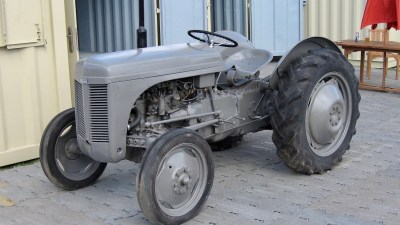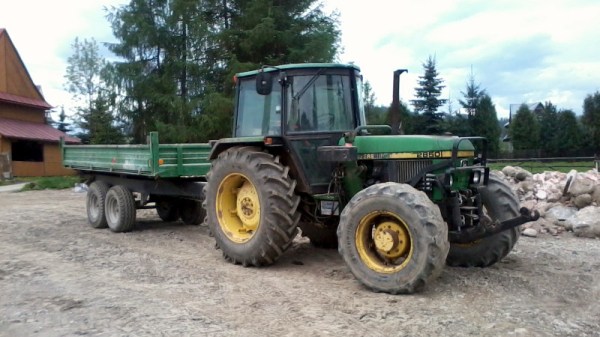Of the many great technological leaps made in the middle of the 20th century, one of the ones with perhaps the greatest impact on our modern life takes a back seat behind the more glamorous worlds of electronics, aeronautics, or computing. But the ancestor of the modern tractor has arguably had more of an impact on the human condition in 2025 than that of the modern computer, and if you’d been down on the farm in the 1940s you might have seen one.
The Ferguson system refers to the three-point implement linkage you’ll find on all modern tractors, the brainchild of the Irish engineer Harry Ferguson. The film below the break is a marketing production for American farmers, and it features the Ford-built American version of the tractor known to Brits and Europeans as the Ferguson TE20.

As the four-wheeled machines grew in size and their implements moved beyond the size of their horse-drawn originals, they started to encounter a new set of problems which the film below demonstrates in detail. In short, a plough simply dragged by a tractor exerts a turning force on the machine, giving the front a tendency to lift and the rear a lack of traction. The farmers of the 1920s and 1930s attempted to counter this by loading their tractors with extra weights, at the expense of encumbering them and compromising their usefulness. Ferguson solved this problem by rigidly attaching the plough to the tractor through his three-point linkage while still allowing for flexibility in its height. The film demonstrates this in great detail, showing the hydraulic control and the feedback provided through a valve connected to the centre linkage spring. Continue reading “Retrotechtacular: The Ferguson System”














